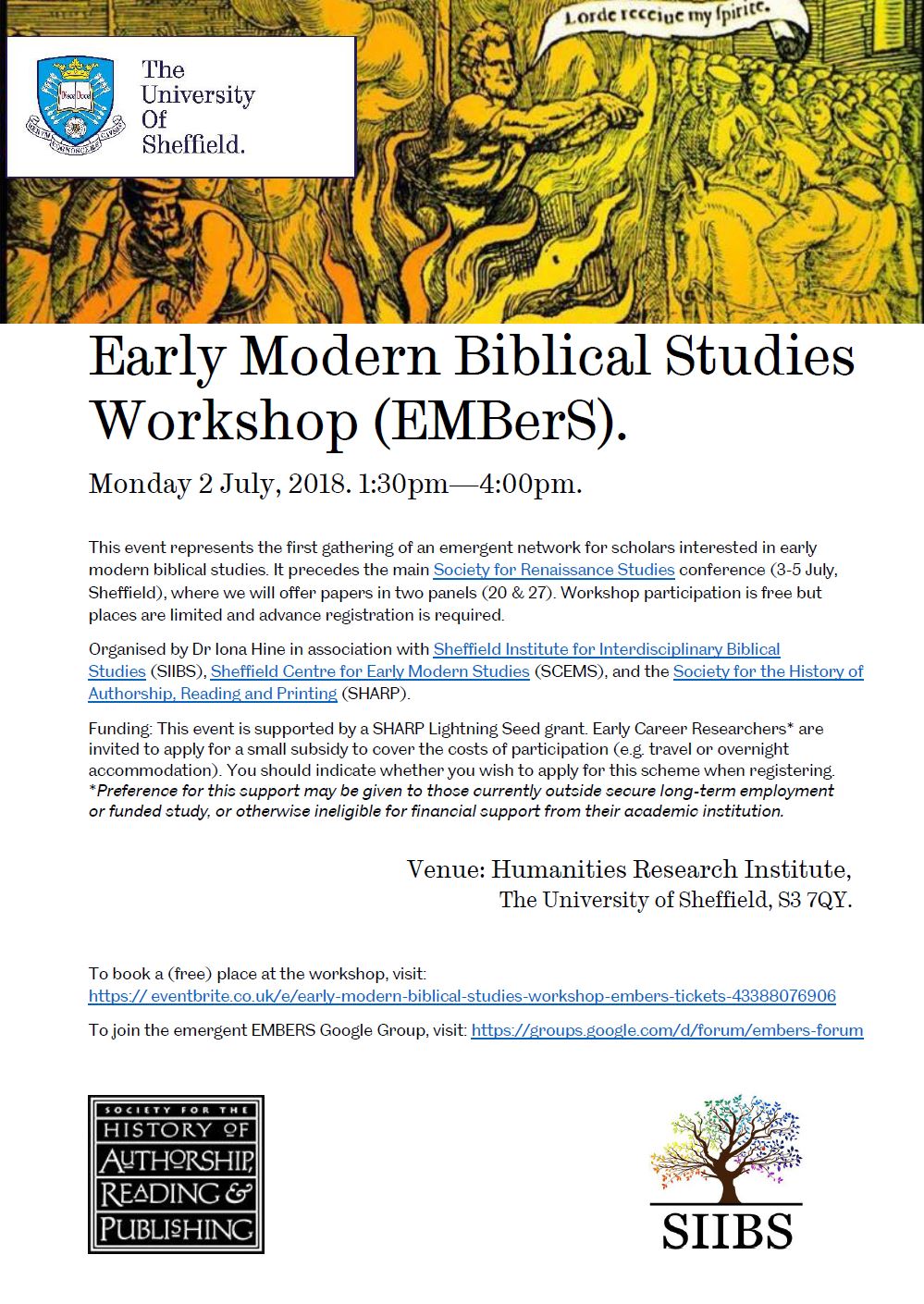Last year, I wrote about the prospects of a new network in Early Modern Biblical Studies. Two weeks today, scholars from a range of disciplinary backgrounds will gather in Sheffield for a workshop to think about ways to take that vision forward.
In advance of that workshop, I’ve invited those with an interest in the field to fill out a survey to help determine our priorities. This is proving a really useful way to capture ideas and think about how best to direct our collective energies. It is good to see answers coming in from those not able to participate in the workshop, since this ensures we have a wide range of perspectives.
Here’s a quick insight into what’s been revealed so far:

There are a couple of things that particularly satisfy me here: the area of greatest dissent at the bottom right concerns the field “other”. Some respondents suggested additional goals. Overall though, the options surveyed seem to have been comprehensive enough to get a good impression of what to focus on first.
The biggest shared priority is actually “discovering what others are doing in the field“. For me, this is telling: while there are plenty of people whose activities touch in some way on early modern bibles, we’re ill-networked. We may know a few others and our work might be known to a few more, but we’ve little occasion to come together collectively. That is the gap that EMBERS will fill, both through the new online Forum and face-to-face beginning with our workshop next month.
If you share an interest in early modern bibles, it’s never too late to add your voice to the survey—it will remain open after the workshop too.
There’s still a handful of free places at the workshop (click on the flyer below to book), though the early career subsidy (covering out-of-pocket costs courtesy of the Society for the History of Authorship, Reading & Publishing) is almost all accounted for.
For those attending the Society for Renaissance Studies conference who cannot make the workshop, you will see EMBERS active in the main programme too. Under the umbrella of Sheffield Institute for Interdisciplinary Biblical Studies, I look forward to chairing a panel “Negotiating Knowledge, Truth, and Expertise with the Seventeenth-Century Bible”, and speaking as part of panel 27: “Power, Protest, and Resistance: Interpreting Biblical Texts for New Audiences” (abstract for my paper below).
Touching Ruth: physicality and resistance in renaissance bible translation
Passages in the book of Ruth suggest that the eponymous heroine engages in risky behaviours: a lone immigrant female venturing out to glean leftover grain (Ruth 2); subsequent pawn in a redemption plot where she must venture outside the city walls by night, washed and perfumed to seek male attention (Ruth 3). Building upon David Shepherd’s observation that “ideological currents and reading traditions shape both the translating and the revising of the Hebrew Bible” (2001:461), this paper explores how and why sixteenth and seventeenth vernacular translations of key verbs from the book of Ruth tend toward non-physical interpretation. What can be learned by comparing vernacular and Latin accounts of these potential physical encounters? Which resonances within the biblical text proved potent for renaissance translators?
Shepherd, D. (2001) “Violence in the fields? Translating, Reading, and Revising in Ruth 2”, Catholic Biblical Quarterly, 63.3 (July 2001) 444-463.

